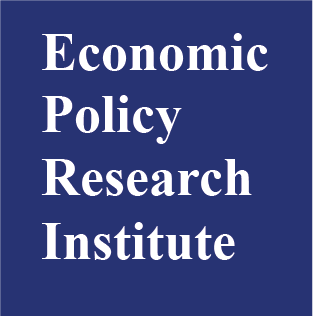Social Protection’s Potential Contribution to Pandemic Response Policy Brief
The Coronavirus Triple Threat and The Potential of Comprehensive Social Protection
The alarming pace of the escalating coronavirus pandemic (COVID-19) elicits a reflexive response: global shutdown. In the absence of social distancing, rapidly progressing infection rates will overwhelm the limited capacity of national health care systems—with catastrophic adverse impact, particularly in the global South.
Pandemics such as COVID-19 create a triple threat: (1) the epidemiological shock threatens the physical well-being of a vast proportion of the population, particularly increasing morbidity and mortality for those without access to adequate health care; (2) the resulting economic consequences undermine livelihoods and intensify the crisis at household, community, national and global levels; (3) the observed siloed reactions to the pandemic (travel bans, economic shutdowns, etc.) implemented in isolation accelerate adverse economic and social impacts and risk missing out on the benefits of a more comprehensive and integrated social response.
As of 22 March 2020, the New York Times lists 65 countries with various levels of travel bans, many of them barring nearly all foreign visitors. National and sub-national declarations of states of emergency around the world are shutting down educational systems, government functions, shops, restaurants, and public events.
Evidence from a number of China’s provinces (other than Hubei) demonstrates how extreme measures can effectively flatten the pandemic curve. The policy choices that governments face around the world involve severe trade-offs, and the increasing prevalence of various forms of lockdown attest to the grave risks in the balance. Shutdowns and cancellations of classes, public events, flights, and other aspects of life as we have known it represent the immediate and perhaps chronic price for pre-empting escalating catastrophe and characterise a new seclusion society.
Dr. Jennifer Nuzzo (John Hopkins University), testifying to the United States Congress, warned of reflexive travel bans and quarantines, stating: “These measures may exacerbate the epidemic’s social and economic tolls.” If governments adopt these measures without adequately addressing the medium- and long-term consequences, the costs will escalate, and the approach may prove counter-productive. Social distancing imposes psycho-social costs that can undermine its effectiveness. The economic consequences of lockdown approaches may exacerbate supply disruptions that weaken medical responses, threaten health and well-being and erode society’s capacity to tackle the crisis. Economic crisis intensifies a range of vulnerabilities with potentially dire impacts, particularly for the poorest and most vulnerable, and risk increasing inequality.
The new seclusion society may be necessary, but the absence of complementary measures may prove costly and even devastating. Strategic adaptations and expansions of social protection systems can contribute to more comprehensive and integrated responses in at least three ways. (1) Pre-emptive social health interventions (including appropriate preventive measures) complemented by immediate supply-side investments can mitigate the epidemiological shock. (2) Provision-oriented measures (including cash transfers) can moderate the livelihoods shocks created by the economic crisis and support the effective functioning of vital markets. (3) A comprehensive strategy that integrates pre-emptive and provision-oriented interventions with improvements in communications, behavioural change, disruption-resilient human capital initiatives, adaptive livelihoods and accommodative changes in social norms can help effectively address the crisis until the eventual epidemiological remedy tackles the pandemic. An integrated strategic response can lower the costs associated with the new seclusion society, increase the likelihood of arresting the pandemic, and strengthen the resilience of affected communities to deal with the consequences. The next policy brief (SPPR02) will further explore this potential, drawing on theory and recent experience.


